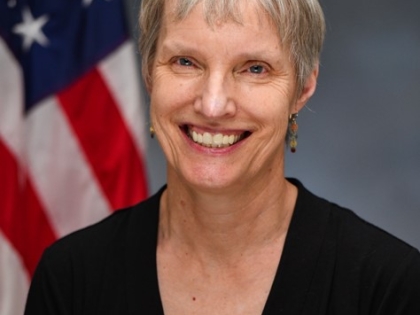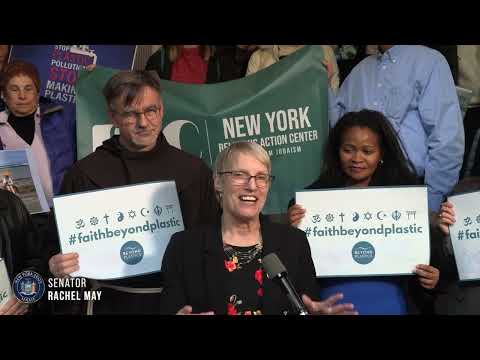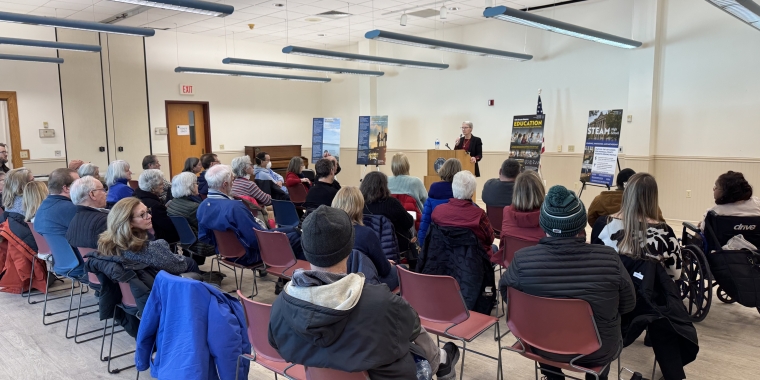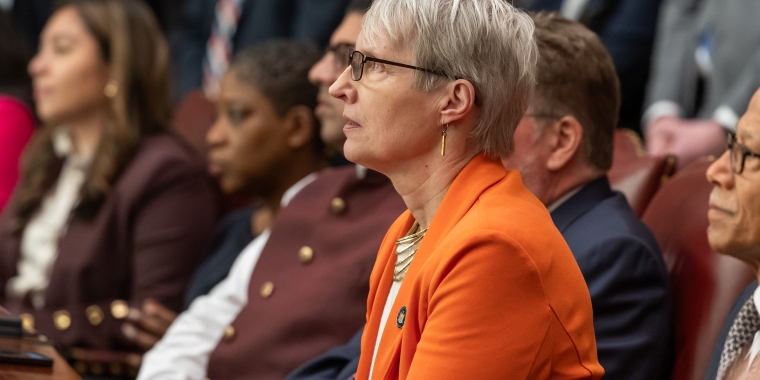
Senator Rachel May Announces Passage of the Climate Leadership and Community Protection Act
June 19, 2019
Albany, NY - Last night, Senator Rachel May (D-Onondaga, Madison, Oneida) and her colleagues in the Senate passed the Climate Leadership and Community Protection Act (CCPA) (S.6599). This landmark legislation addresses the climate crisis by requiring New York State to cut its greenhouse gas emissions to 60% below 1990 levels by 2030, 85% below 1990 levels by 2050, with the remaining 15% being offset through other measures which will equal a net-neutral carbon economy by 2050. This is the most aggressive climate legislation currently in the country, and puts New York on the path to global leadership in climate action.
The Climate Leadership and Community Protection Act, will:
- Minimize the adverse impacts of climate change by reducing statewide greenhouse gas emissions.
- Improve the state’s resiliency to the certain effects and risks of climate change.
- Ensure that the ongoing transition of the state's energy sector will create good jobs and protect workers and communities during the transition process.
- Prioritize the safety and health of disadvantaged communities, control the potential regressive impacts of future climate change mitigation, and adopt policies for these communities.
- Review and prioritize the allocation of public investments.
Senator May held the first hearing on the CCPA in Syracuse at SUNY ESF on February 21st, 2019. The Senate Majority held a series of additional hearings, led by Chair of the Environmental Conservation Committee, Senator Todd Kaminsky, in Albany, New Paltz, New York City, and Long Island. These hearings allowed concerned citizens, stakeholders, and environmental experts to provide testimony on how climate change has impacted their communities and make recommendations for New York State moving forward.
The legislation creates a 22-member Climate Action Council. This interagency body will convene advisory panels to provide specialized expertise on topics including transportation, energy intensive and trade-exposed industries, land-use and local government, energy efficiency and housing, power generation, and agriculture and forestry. These panels will generate scoping plans to present to the Council on best ways to implement the changes required in each industry to meet target emissions reductions.
The Council also will convene a just-transition working group, chaired by the Commissioner of Labor and President of the New York State Energy Research and Development Authority (NYSERDA). The working group will advise the Council on issues and opportunities relating to workforce development and training, with specific focus on disadvantaged communities and underrepresented groups.
The legislation creates a Climate Justice Working Group comprised of representatives from environmental justice communities -- including communities of color, low-income communities, and communities bearing disproportionate pollution and climate change burdens or those with experience and history of advocacy on environmental justice issues. It will also include at least three representatives from New York City, three from rural communities, and three from Upstate urban communities. Representatives from the Department of Environmental Conservation, Department of Health, Department of Labor, and NYSERDA will also be included in the working group.
“With the Climate Leadership and Community Protection Act, the New York State Senate is standing up boldly for future generations,” said Senator May. “For too long, politicians have delayed action and denied the urgency of climate disruption. But more and more people are seeing the direct impact of a rapidly-warming planet -- including farmers, fishermen, coastal residents, and young people everywhere -- and are raising their voices to demand real action. I am proud that we found the courage to pass this bill, and we will continue to do everything we can to assure a just transition to a green, more sustainable, economy.”
# # #
related legislation
Share this Article or Press Release
Newsroom
Go to Newsroom

